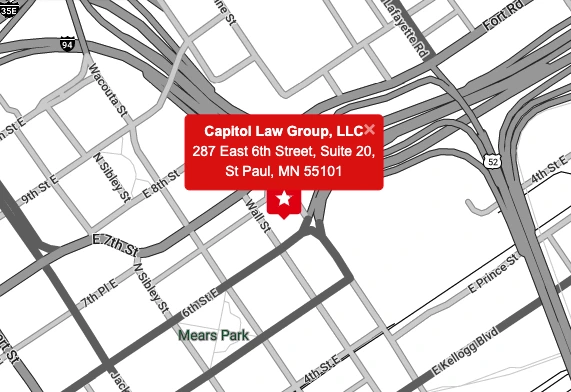How Do St. Paul Criminal Defense Attorneys Expunge Criminal Records?

Many people believe that a criminal history eventually falls off a permanent record. In some cases, that’s true. Prior DWIs are only relevant to future DWI sentences for ten years. And, when employers do background checks, these checks often do not pull up records more than ten years old. Other than that, however, criminal records are usually permanent.
However, in 2015, lawmakers substantially liberalized the state’s expungement law. Today, many more people than before are eligible for this relief, as outlined below.
A quick grammar lesson. In some states, “expunged” or “expungement” means the complete destruction of criminal records. It’s like it never happened. But in Ramsey County, the e-word basically means record sealing. The records still exist, but only certain government agencies can view them for certain purposes.
It might be easier to expunge criminal records in Minnesota, but expungement is not automatic. The judge still has a great deal of discretion, especially in some situations. So, to purge a criminal past, at least to the greatest extent possible, you need a good St. Paul criminal defense attorney.
Full Expungement
This statutory process seals both judicial and law enforcement records. All these records become invisible except in limited circumstances. Examples include certain professional license applications and subsequent run-ins with the law. Basically no one else can see them, such as lenders, employers, and landlords. As for felonies, statutory expungement is available in the following situations:
- Drug Possession: This change is significant. Simple possession accounts for over 80 percent of the drug arrests in Minnesota. If the defendant was a first-time offender and a St. Paul criminal defense attorney makes the proper arrangements before the case is resolved, the record is probably expugnable.
- Juvenile Offenses: Contrary to popular myth, juvenile criminal records are not automatically sealed once the defendant turns 18 or 21. However, a St. Paul criminal defense attorney can often expunge these records, even if the defendant was prosecuted in adult court.
- Not Guilty Verdict: In this context, a not guilty verdict could be several things. Obviously, a not guilty verdict at trial suffices. The same thing is true if an appeals court overturns the conviction and the state does not retry the case. A pretrial dismissal might qualify as well, provided the dismissal indicated there was a lack of evidence, or even better, a lack of probable cause.
- Section 609A.02 Offenses: In its infinite wisdom, the state legislature designated a long list of crimes as eligible for expunctions. Some highlights include cattle rustlin’, bribing a pageant judge, assaulting a police officer’s horse, and some gamblin’ crimes. Many kinds of forgery and theft are also eligible under this provision.
Under the new law, a St. Paul criminal defense attorney can also expunge most misdemeanor convictions, including gross misdemeanors. A waiting period usually applies, as do some other restrictions.
Meeting the minimum qualifications is not enough. In fact, many judges only expunge felony records if the defendant received deferred disposition and at least two years have passed since the defendant was released from probation.
St. Paul Criminal Defense Attorneys and Limited Expungement
In Minnesota, judges usually have the absolute power to purge records in their own courts. That includes expunging a person’s criminal history.
Judicial expunction is frequently available when defendants do not quite meet the statutory expungement standards. For example, if the crime involved any allegations of domestic violence or sexual assault, the result is not expugnable. That could include something like Mary forging her husband’s signature on a loan application.
Sex offenses are the major exception to the aforementioned purge power. These convictions are usually not ever expugnable, especially if the defendant is subject to a registration requirement.
The above factors often come into play in judicial expungement proceedings. Other relevant factors include the defendant’s ongoing risk to the community, if any, extenuating circumstances, subsequent rehabilitation, like overcoming a substance abuse problem, and the defendant’s connections to the community.
Contact an Experienced Lawyer
Expungement is often available, but it is by no means automatic. For a free consultation with an experienced St. Paul criminal defense attorney, contact Capitol City Law Group, LLC. Go online now, call us at 651-705-8580, or stop by 287 6th St E, Suite 20, St Paul, MN 55101.




